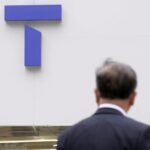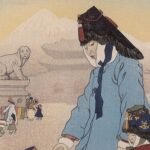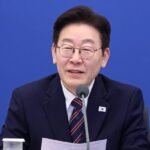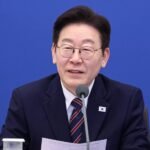The Kona Electric production line at Hyundai Motor’s plant in the Czech Republic (File photo)
Hyundai Motor Co., South Korea’s top automaker, is set to introduce tougher emission standards-compliant model in Europe next year ahead of its plan to sell only electric vehicles there from 2035 in a bid to reboot its sales in the region with clean cars, taking advantage of the bloc’s decision to sharply raise tariffs on Chinese-made EVs.
Hyundai Motor Co. is scheduled to assemble a prototype of its subcompact crossover sport utility vehicle (SUV) Kona that meets a new Euro 7 emission rule from Dec. 3, industry sources in Seoul said.
The larger carmaker of the world’s No.3 automaker Hyundai Motor Group is known to plan to change the engine and exhaust system of the SUV’s internal combustion engine trim and the battery system for its hybrid version, according to the sources on Wednesday.
Hyundai Motor Co. aims to mass-produce the new Kona in November 2025 after completing its development by May or June next year. The group plans to introduce the technology to other models of Hyundai Motor Co. and its affiliate Kia Corp.
TOUGHER EMISSIONS STANDARDS
The Euro 7 regulation establishes rules for the exhaust emissions of road vehicles, but also for other types of emissions such as tire abrasion and brake particle emissions. It also introduces requirements for battery durability.
The rule, which will come into force starting from November 2026, keeps the existing Euro 6 exhaust emission limits for cars and vans but introduces stricter requirements for solid particles.
The regulation also includes stricter lifetime requirements for all vehicles in terms of both mileage and lifetime.
Automakers whose vehicles fail to meet the emission standards in Europe are expected to pay fines of 15 billion euros ($16.3 billion) or give up manufacturing more than 2.5 million cars, industry sources said.
TO REBOOT SALES IN EUROPE
Hyundai Motor Group aims to revive its declining sales in Europe by launching Euro 7-compliant cars ahead of rivals.
Hyundai Motor Co. and Kia sold 821,925 vehicles in Europe during the first nine months of the year, down 3.4% from a year earlier. Their market share in the region fell 0.4 percentage point to 8.4% during the period.
Visitors check the China made BYD ATTO 3 at the IAA motor show in Munich, Germany, on Sept. 8, 2023 (File photo by AP via Yonhap)
That came as Chinese companies aggressively expanded their shares in Europe, the world’s second-largest EV market.
China-made EVs made up 21.7% of the regional market last year, sharply up from a mere 2.9% in 2020, according to the European Automobile Manufacturers Association.
The rapid growth hurt not only Hyundai Motor Group but also major European automakers. Volkswagen AG, the world’s second-largest carmaker, plans to close “at least” three factories in Germany, lay off staff and slash all workers’ pay by 10%.
European automakers usually spending four years on new model developments, lost competitiveness against Chinese rivals, which launches new cars every year.
The European Union raised tariffs on EVs made in China to up to 45.3% to prop up the regional auto industry, which industry sources said is expected to cut the market share of Chinese EV makers.
Hyundai Motor Group aims to raise its presence with customized models including internal combustion engine cars, hybrid vehicles and EVs for Europe, taking advantage of the weakening competitiveness of rivals in the region and higher tariffs on Chinese EVs.
The South Korean conglomerate also plans to sell only EVs in the region by 2035.
By Jung-Eun Shin and Jae-Fu Kim
newyearis@hankyung.com
Jongwoo Cheon edited this article.















